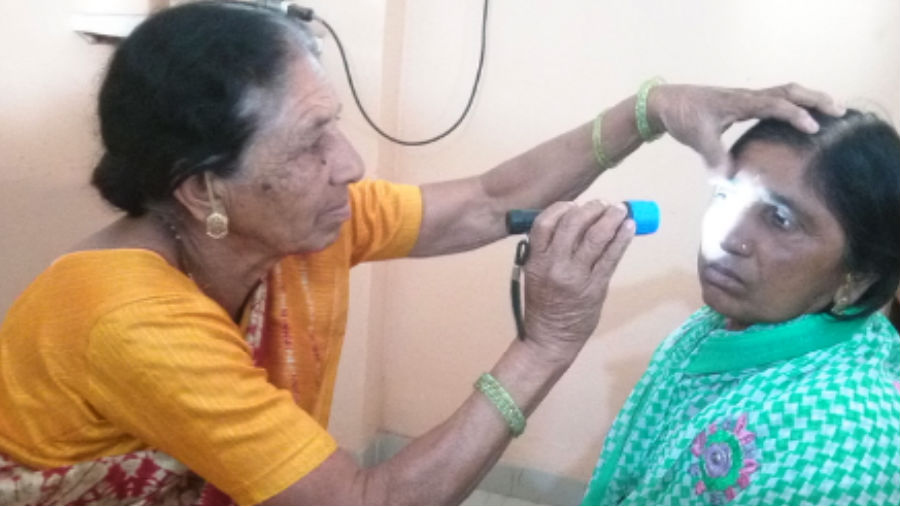Join a powerful, unprecedented alliance for better eye health for all.
Join IAPB-
Choose an alternate language here
These blog posts are part of the IAPB Gender Equity Work Group‘s work to raise awareness of gender equity in eye health. A Mission for Vision partner story…

Khairunissa, 68, has been working with Mission for Vision partner Tulsi Chanrai Eye Hospital as a social worker since the inception of the hospital in 1994 at Nashik. When she was selected to become a Social Worker, her own maternal uncle was suffering from blindness. Over the years how she has made an impact…
I have faced many challenges in my journey. Because of this community health work, I separated from my husband, who was opposed to it. I am a survivor of gender-based violence; my husband physically & mentally abused me. So, finally I decided to separate from him. It was a very tough decision but my family stood by me. When I look back I feel proud about my decision.
For a conservative Muslim woman like me it is quite difficult to step out from home and work with community in a rural area, where the bias about working women is high. I accepted that challenge, and through hard work & commitment have developed a rapport with the community. They have accepted me as a woman health worker.
Support from my family. Especially my mother who stood behind me. Also, my colleagues & staff of Tulsi Eye Hospital, Nashik helped me a lot.
Due to lack of access to health services & education women & girls suffer more in rural areas. Priority is always given to men over women when it comes to access. I think giving access to good education & quality health services to women in rural areas will help improve the situation. This can empower them in decision making process also.
Because I have a passion to serve marginalised communities. I hope, seeing my work, more girls in rural areas will take up this profession. I feel happy when I see a smile on the face of woman when her sight is restored.
In rural areas priority for health is given to men. Women come last, when it comes to getting access to improve their health status. I have visited homes in rural areas & motivated the women population to go for treatment for their eyes & other health related problems. As I have experience of ASHA workers, I also motivate rural women to become literate. I also work for the adult literacy programme.
Our hospital always prioritises women and their eye health. We run awareness camps for gender sensitisation.
You can support these women to take up this profession by providing quality education and, by providing equal opportunities for women.
We can create awareness about eye health seeking behavior among women. We can organize special camps for women not only for eye health but other health problems also. Eye health can be introduced at PHC level so that a greater number of women can easily access these primary eye health services. We can make them economically independent by establishing self-help groups.
Khairunnisa’s story was put together by Dhanaji Ranpise, Manager–Programme Impact, Mission for Vision.
[vc_row el_class=”light-row rebelcell prev-blind”][vc_column width=”1/2″ el_class=”cellspace”][vc_column_text]
[/vc_column_text][vc_column_text]
[/vc_column_text][vc_separator color=”white”][vc_column_text]
[/vc_column_text][vc_separator color=”white”][vc_column_text]
[/vc_column_text][vc_separator color=”white”][vc_column_text]
[/vc_column_text][vc_separator color=”white”][vc_column_text]
[/vc_column_text][vc_separator color=”white”][/vc_column][vc_column width=”1/2″ el_class=”cellspace”][vc_column_text]
[/vc_column_text][vc_separator color=”white”][vc_column_text]
[/vc_column_text][vc_separator color=”white”][vc_column_text]
[/vc_column_text][vc_separator color=”white”][vc_column_text]
[/vc_column_text][vc_separator color=”white”][vc_column_text]
[/vc_column_text][/vc_column][/vc_row]